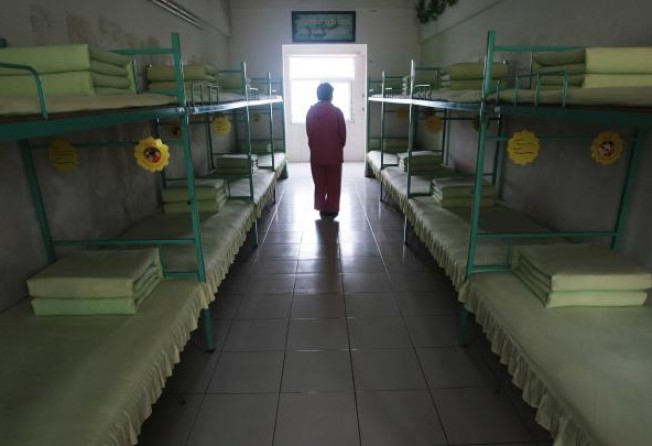Ending re-education through labour must lead to curbs on police powers
Hu Shuli says whatever changes are made to the system,they must go hand in hand with efforts to ensure officers operate under the rule of law

The detested administrative punishment of "re-education through labour" may finally end this year. A proposal for reform tabled at a law and order work conference this month is said to have the central government's backing, and will take effect once the National People's Congress Standing Committee gives its nod.
This is good news. It represents progress built on the recent cases of people like Ren Jianyu and Tang Hui , whose fight for freedom made the news. But many problems still have to be solved before police excess can be curbed.
To deprive a person of his freedom through labour re-education is an anachronism. By the second half of the 20th century, most countries had come to agree on the basic principles on restricting freedom set out in the United Nations' International Covenant on Civil and Political Rights.
Yet China's punishment of re-education through labour, which began in 1957 and continues today, gives local security and administrative officials the power to strip a citizen of his freedom for up to four years without needing approval from the court or state prosecutors. The police have long been the major agency to wield this power.
Labour re-education originated, of course, in the terrible forced labour camps of the former Soviet Union.
Today, a civilised society is judged by its ability to protect people's personal freedom. It is a prerequisite for social harmony. A society that cannot protect people's freedom is also one where police power runs amok (this largely refers to the security police, but in China also includes criminal investigation officers). Such unjust detention not only harms the person in question, but also makes the infringement of other people's civil liberties and rights easier.
In 1215, the English nobility forced King John to sign the Magna Carta that limited his powers. The charter's Article 39 states: "No free man shall be taken, or imprisoned, or dis-seized, or outlawed, or exiled, or in any way harmed - nor will we go upon or send upon him - save by the lawful judgment of his peers or by the law of the land." This provision protected not only the noble class but also ordinary people, paving the way for the establishment of the English writ system in the 15th century and the acceptance of habeas corpus in the 17th century.
Just as there can be no private ownership of property without laws protecting ownership, people can't be said to be free if there are no laws protecting their freedom. This is why we must rely on a court of law - one that is independent or at least relatively independent - to make decisions about our freedom.
Among the three branches of government power, the executive (which oversees the police) holds the greatest power in China. As a result, a large number of laws are drafted by executive departments, then approved by the legislative departments. Moreover, the judiciary has little oversight over the executive, which uses police power as a tool to get its way.
Now that China has pledged to uphold the rule of law, reforms should be deepened to overhaul the system of governance, allowing the NPC and an independent judicial authority to rein in executive power.
Unchecked police power is one reason the labour re-education system has persisted to this day. The case of Sun Zhigang is instructive. Outrage over the death of the migrant worker in 2003 led to the end of the administrative measure of detaining and repatriating people without a household registration in the city. Yet it did not weaken police power. Thus, today, it is not enough to demand a stop to re-education through labour; the police's wings must be clipped for the rule of law to function effectively.
Opinion is divided on how to end the system and what better system could replace it. Some scholars have suggested the introduction of a rehabilitation bill or a communal corrections bill. Yet others say such bills should not be linked with the labour re-education system.
Some scholars say laws can be written to target specific acts such as drug abuse, following the examples of Germany or Taiwan, where they are included as part of the criminal law.
But some legal professionals say non-criminal offences should lead to administrative detention of up to 15 days, according to the Administrative Punishment Law, whereas minor criminal offences should lead to detention of 15 to 60 days. From this perspective, the two different types of offences are already being dealt with seamlessly.
No doubt free and open debate can highlight the pros and cons of the issue and the complexities involved.
As with the move 10 years ago to end the illegal detention of migrants, the effort today to end re-education through labour is intended to rein in police power. Thus, we must be alert to how the police might reassert their power in other ways. This means imposing more effective checks on them.
In addition, the authorities must deal with problems within the police force associated with a high level of risk and low pay. Officers should be offered higher wages to boost their morale and integrity. Bringing police operations under the rule of law is a long-term task.
To reform the system of labour re-education would be to remove a malignant tumour in the system. It must be done as we build up our rule of law.
This article is provided by Caixin Media, and the Chinese version of it was first published in Century Weekly magazine. www.caing.com